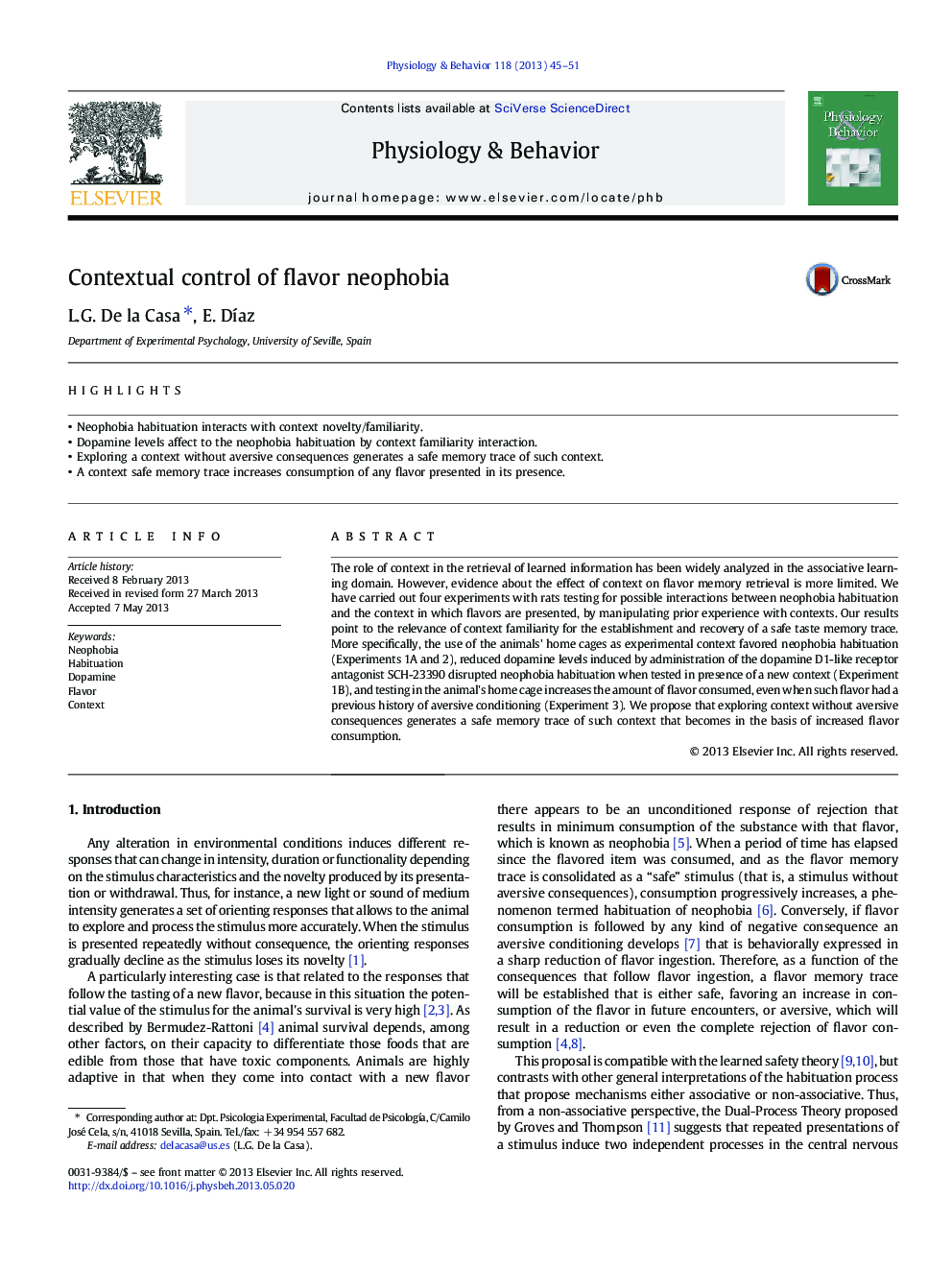| Article ID | Journal | Published Year | Pages | File Type |
|---|---|---|---|---|
| 5924688 | Physiology & Behavior | 2013 | 7 Pages |
â¢Neophobia habituation interacts with context novelty/familiarity.â¢Dopamine levels affect to the neophobia habituation by context familiarity interaction.â¢Exploring a context without aversive consequences generates a safe memory trace of such context.â¢A context safe memory trace increases consumption of any flavor presented in its presence.
The role of context in the retrieval of learned information has been widely analyzed in the associative learning domain. However, evidence about the effect of context on flavor memory retrieval is more limited. We have carried out four experiments with rats testing for possible interactions between neophobia habituation and the context in which flavors are presented, by manipulating prior experience with contexts. Our results point to the relevance of context familiarity for the establishment and recovery of a safe taste memory trace. More specifically, the use of the animals' home cages as experimental context favored neophobia habituation (Experiments 1A and 2), reduced dopamine levels induced by administration of the dopamine D1-like receptor antagonist SCH-23390 disrupted neophobia habituation when tested in presence of a new context (Experiment 1B), and testing in the animal's home cage increases the amount of flavor consumed, even when such flavor had a previous history of aversive conditioning (Experiment 3). We propose that exploring context without aversive consequences generates a safe memory trace of such context that becomes in the basis of increased flavor consumption.
